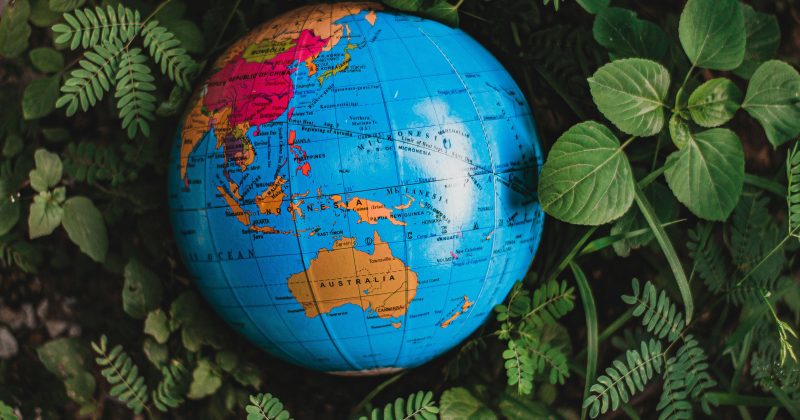Susan O'Rourke | March 6, 2024

Earth Day presents an opportunity for students to reflect on the beauty of the Earth and the urgent need to care for the planet and its people. Observed around the globe since its inaugural celebration in 1970, Earth Day encourages appreciation of local and global natural resources, like water and forests, and the development of sustainable habits in our daily lives and in our communities. Earth Day creates opportunities for students to explore their relationship with the Earth, whether through reading and writing poetry, creating art, studying environmental science, or conducting a local cleanup.
Celebrations across the globe, ranging from festivals Yoyogi Park and Miyashita Park in Japan to the English sustainability event “Earthfest” held in London, help people think more deeply about their relationship with the environment around them and call on people to advocate for policy changes that will improve environmental quality and reduce risk to human, animal, and plant life. This year’s Earth Day focuses particularly on the impact of plastics on the earth and humans. The 2024 theme, “Planet vs. Plastics” seeks to develop more “widespread awareness of the health risk of plastics, rapidly phase out all single use plastics, urgently push for a strong UN Treaty on Plastic Pollution and demand an end to fast fashion.” The organization has published resources that educators can use to teach students about the ways microplastics have leaked into the environment and affected humans, as well as to empower students to advocate for “greener” choices and policies that can reduce this plastic pollution and impacts on human health.
Educators taking a global approach to celebrating Earth Day can consider the following resources and lessons from UNC World View that infuse global perspectives into lessons on subjects relevant to Earth Day, including clean water, food security, and sustainability. Educators might also consider bringing in a global perspective by teaching students about the other environmental holidays celebrated internationally and regionally, such as Africa Environmental Day, World Environment Day, and International Day of Forests (celebrated with a “Green Earth for the Future” event in Umi-no-Mori Park in Tokyo, Japan and guided tours at the FAO Park Global Library of Trees and Flowers in Rome, Italy.)
K-12 Educator Resources:
- History of Earth Day (National Geographic Kids)
- 20+ Books to Celebrate Earth Day (Scholastic)
- Lesson Planet: Teaching Sustainability Educator’s Workshop (Penn State University)
- 4 Ways to Explore Poetry on Earth Day (Edutopia)
- Make Earth Day a Global Learning Day (Edutopia)
- Curriculum Packets and Lessons (EARTHDAY.ORG) for Elementary, Middle, and High School Students
- Climate Literate Lesson Guide (EARTHDAY.ORG)
- Earth Month Calendar (EARTHDAY.ORG)
- Environmental Racism and the Tragedy of the Commons (UNC World View Global Fellows Lesson)
- UNC World View Global Fellows Lessons: The Sustainable Development Goals for a Better World
- UNC World View Global Fellows Lessons on The OVERBook Project on the Environment and Sustainability
- UNC World View Global Fellows Lessons: Exploring Indigenous Cultures
Community College Educator Resources
- UN Environment Program Data and Resources on
- UN Interactive Dialogue to Celebrate Earth Day (an “interactive dialogue that will be streamed on Monday, 24 April (10 am – 1 pm, New York Time) through UN WebTV, where speakers will discuss how to live in harmony with nature instead of adopting an anthropocentric view in our relationship with Mother Earth”)
- Farm to Table (with a focus on Europe) (UNC World View/Scholar of Global Distinction Module)
- Geology (with a focus on plate tectonics and Japan) (UNC World View/Scholar of Global Distinction Module)
- Biology (with a focus on food security and Ethiopia) (UNC World View/Scholar of Global Distinction Module)
- Biology (with a focus on oceans and Latin America) (UNC World View/Scholar of Global Distinction Module)
- Ancient North Carolinians’ Foodways and Sustenance (UNC World View Global Fellows Lesson)
